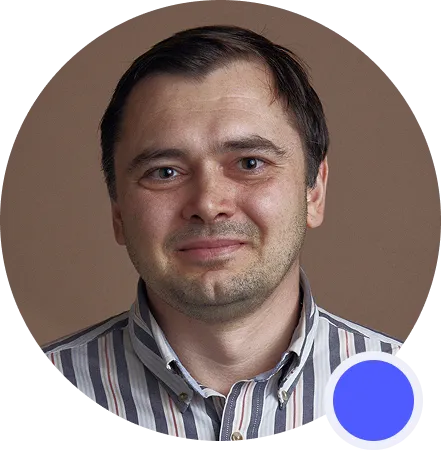Breaking Bad Habits: How Product Teams Trip on Common Mistakes
We’re opening a series of articles dedicated to the product development approach. Today let’s talk about team management in product development. Alexey Kulakov, JetStyle’s CEO and co-founder, has been mentoring startups at corporate accelerators, that’s why he’s accumulated experience and vision of how products develop. In particular, he’s also witnessed a recurring pattern of mistakes that product teams tend to make as they work on a product idea.
In this article, Alexey delves into the common missteps that product teams frequently encounter. He’s compiled a list of mistakes relating to various aspects of product development: from goal setting and hierarchy to delegating roles within the system. If you’re a member or leader of a product team, it might be useful for you to view these pitfalls from outside. Fixing your product development process might be a way to steer towards product excellence.
By the way, Alexey wrote and released a book about the basics of product development; it’s available for free on Amazon: https://amzn.to/3XpSb7Z
Alexey Kulakov names most common missteps by product development team:
- Teams often neglect the crucial aspect of product development, that is, communication with real people.
It greatly impacts the product's overall success. They place their own ideas first, and fail to observe people's behavior. Clients’ feedback is a valuable source of insights. Without engaging with clients, you risk losing touch with reality and creating something that the market doesn't need. Fortunately, I’ve noticed that this happens less these days.
- Confusion arises when teams mix up goals and metrics.
While metrics are important for measuring success, the team's main objective should be scaling the product's success and working towards its goals. Sometimes, goals are overshadowed by transient indicators, and it causes a loss of focus within the system. With that, teams lose their work rhythm and lose the big goal out of sight, and that’s when the failure begins.
- Teams tend to center their activities around a development of a set of features.
This one’s quite common: the so-called product vision turns out to be just executing a set of functional features. When this happens, people subconsciously try to match the research results with their preconceived notions. To address this, teams should follow a methodology and clarify their initial hypotheses.
- Relying solely on expertise rather than conducting research is definitely a mistake, although a tempting one.
Expertise is valuable, but decisions based solely on expert opinions often lead to lower quality outcomes. At the same time, relying on expertise is much cheaper and faster than market research. The ideal approach involves combining expertise with thorough research activities and hypothesis development.
I’ve witnessed this in my practice: whenever experts skip research, they get drawn away by their vision. Development without testing and checking in with reality will result in a failure.
- Launching a product without testing is a recipe for failure.
Even if you have a vision, it is essential to develop your product through a series of test launches, and there are no exceptions to this rule.
- This one is the result of the previous mistake: teams start to focus their attention on optimizing separate metrics instead of focusing on the big picture.
This phenomenon is called local optimization, and it’s a disaster for the process. It diverts team resources from achieving their goals, and negatively impacts the system's capacity by causing ‘bottlenecks’.
A bottleneck is an overloaded section of the system that slows down the production flow. A product team is supposed to optimize the bottlenecks one by one not to let them hinder the progress.
- Part-time product development is not feasible, don’t even try it.
I’ve been promoting this idea throughout my mentoring career: business development is not a hobby at all. It requires significant resources (if not all of them) and cannot be treated as a part time activity.
- Choosing a non-entrepreneur as CEO for a new product hinders progress.
An entrepreneur is a core member of the product team; without an entrepreneur it is really hard not to lose motivation to develop your product. Entrepreneurs possess superpowers: they thrive in chaotic environments, they know how to conceptualize goals and responsibilities, and embody the entrepreneurial spirit.
- Market research should never be skipped.
A vital lesson I've learned is to avoid starting a business in a stagnant niche. The niche's dynamics is more significant than its size. Teams should seek out a growing niche, understand its growth factors, and capitalize on them. Operating in a stagnant niche leads to being out of sync with market trends.
- Don’t reinvent existing best practices.
Experimentation is more suitable for areas that lack established practices. Initially, it is wise to adopt and refine existing best practices. The essence of startups lies in developing innovative solutions that previously didn't exist in the market.
- Results of hypothesis testing need more thorough interpretation.
Usually, there are three typical results of hypothesis testing: approving the hypothesis, rejecting it – these two are considered positive results, or failing to accomplish either. Failing to find approval doesn't automatically mean the hypothesis is rejected; it simply indicates insufficient effort in testing.
***
These mistakes may be avoided if the team strictly follows the methodics and keeps in touch with the market. However, it’s always a good idea to consult with an expert to get an outside vision and see the bigger picture. JetStyle’s product development team is fully equipped with specialists from both management and development flows, so it provides full-scale product development services. Sign up for a free demo call if you want to discuss how your team may benefit: https://calendly.com/js_project_interview/30min









